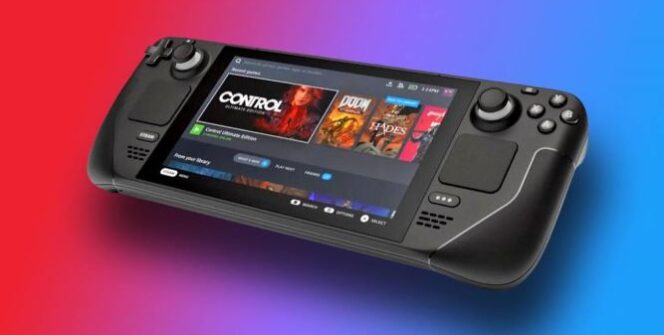Valve has made its intentions clear of wanting to develop a Steam Deck 2, and has also explicitly mentioned that a speedier handheld is not on the immediate horizon. Pierre-Loup Griffais from Valve has now communicated to The Verge and CNBC that it might be the end of 2025 or later before they decide to elevate their standards. This is mainly because they’re aiming for a boost in performance without causing a considerable reduction in battery lifespan.
“I wouldn’t foresee such an advancement happening in the upcoming few years,” Pierre-Loup Griffais conveyed to The Verge via electronic correspondence.
Here’s the full statement:
“Our aim is for the Deck to provide a consistent performance benchmark for developers and a straightforward message for users, ensuring every Deck unit supports identical games. Therefore, adjusting the performance threshold isn’t a decision we take casually. We would only consider it if there’s a remarkable gain to achieve. We also wouldn’t want an increase in performance to severely compromise power efficiency and battery duration. I wouldn’t expect such advancements to be feasible in the upcoming few years. However, we are diligently tracking advancements in technology architectures and manufacturing techniques to gauge the future prospects.”
Earlier today, he conversed with CNBC about the same topic, suggesting, “We envision this performance benchmark to remain consistent for a few years.” Given the Steam Deck’s launch in February 2022, my inference was he might be hinting at 2024.
However, the phrase “the upcoming few years” implies a lengthier duration than I previously assumed. While the Steam Deck is technically equipped to handle the latest PC games, the challenge has increased with the new array of demanding and inefficiently optimized games like The Last of Us Part I, Redfall, and Starfield.
(From my observations, playing Starfield on the Deck has become feasible even with some visual compromises as of the Steam Deck OS 3.5 Preview. Griffais attributes this to “a specialized optimization drive in the Mesa radv Vulkan driver by our graphical driver department” to accommodate atypical functionalities like ExecuteIndirect. He elaborated that Valve had garnered expertise in optimizing a parallel GPU-driven rendering channel when they incorporated support for Halo Infinite.)
Nevertheless, it’s plausible that Valve is already contemplating a refresh of the Steam Deck without altering its baseline performance. Historically, console makers have a penchant for introducing iterations of their hardware that are more compact, energy-efficient, and lighter. Nintendo, for instance, has updated the Switch twice, one for better battery life and once for a superior display.
The primary concerns Griffais and his co-designer Lawrence Yang wish to address in a subsequent version of Steam Deck, as they apprised me in late 2022, are the screen and battery.
A revamped display might augment perceived performance even without introducing a new chip for frame rate enhancement. The demonstration from Asus ROG Ally is a testament to this, where the game Starfield on the Ally and an Ayaneo Geek 1S, essentially housing equivalent chips, feels more fluid on the Asus, predominantly due to its dynamic refresh rate that tempers the performance fluctuations. Valve might also elevate its upper limit of performance, especially if they introduced a connected turbo mode, akin to other handheld devices.
Could Valve be in talks with AMD to miniaturize and refine the chip to be more energy-efficient? Or are they in search of an improved display? Perhaps they’re considering a more robust battery? Alternatively, Valve might be biding its time, waiting for the much-anticipated standalone SteamVR headset under the mysterious Galileo/Sephiroth project.
Speculation also surrounds the possibility of Galileo being a Steam living room PC capable of transmitting graphics to a headset, though Griffais recently dismissed this notion.
Source: The Verge“
















Leave a Reply